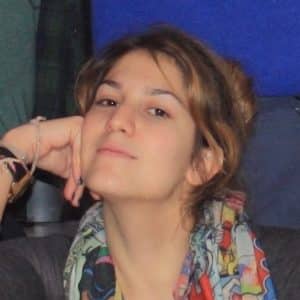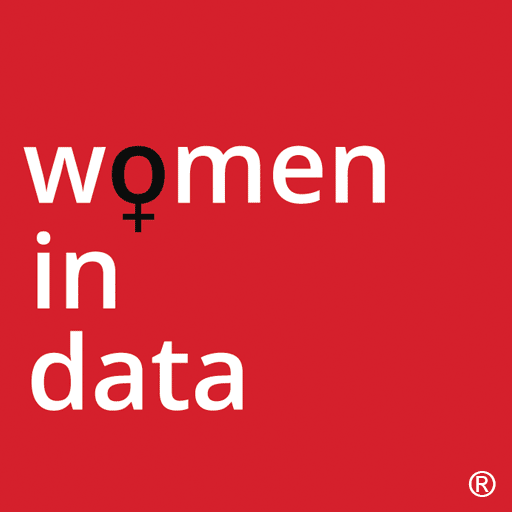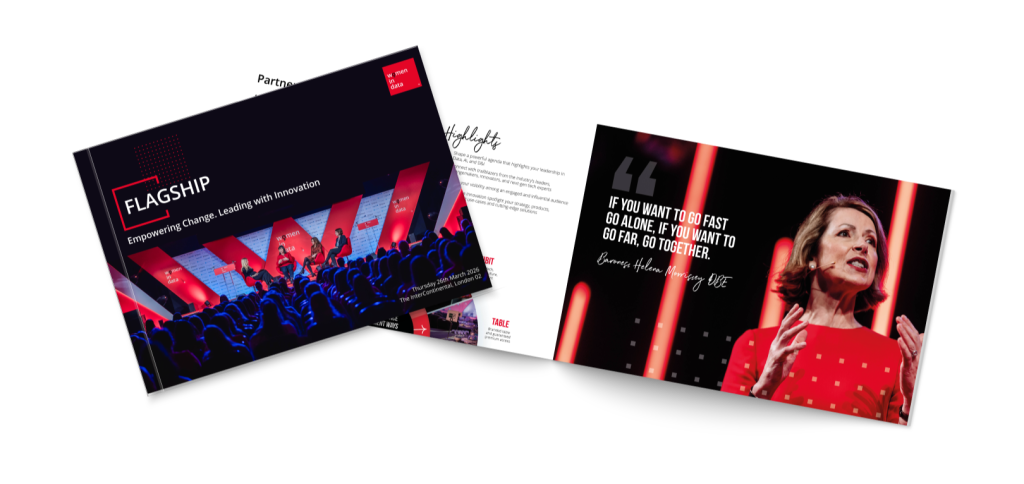
 By Elektra Papazoglou
By Elektra Papazoglou
Part iii: Starting over yet again – my role at Kalido
Kalido is an AI-driven matching engine that continuously matches members of organizations, non-profits and universities to unmet demand. It has a social component, which would ordinarily leave me uninterested in the platform; so far I have strived to stay away from Facebook and the likes, but Kalido has a different value proposition. While other platforms tend to isolate people by becoming a proxy to real world human relationships, Kalido actually facilitates live interactions between its users. This is achieved by creating or surfacing otherwise unseen opportunities for users to put their unique skills to use. So whether you are seeking a dance partner or a chess tutor, a dentist or an electrician, you should be able to find people in your proximity that match the requirements. Similarly, you can let people know that you are a data science magician and they can come to you with relevant questions, or even to start a group that gets together every Sunday at your neighbourhood cafe to discuss recent advancements in the field.
What’s more, data privacy is taken very seriously at Kalido. Users are made aware of how their data is stored and used, at all times, with their explicit consent. Since the company makes revenue from providing its platform for commercial use as a b2b service, it does not need to manipulate and sell user data to third parties. That way, the data shared within Kalido is only used anonymously by us -the ML team- to run crazy machine learning experiments that will make the Kalido experience better, faster and more fun for its users!
The Kalido ML team is brand new, barely six months old. It is a team of four and I was glad to find that it is balanced in every way. It consists of two ML-engineers and two data scientists (myself being one of them), one male and one female per job role. Belonging to a team where people have different ways of thinking and are proficient in different skills has already helped us in a multitude of ways. For starters, it has made us more conscious of the long-term implications of what we build (we do not want to create ‘monsters’ that are hard to maintain in the future), giving us the confidence to think big and attempt the more difficult tasks. Having access to different points of view as to what can go wrong during a project allows our team to create contingency plans, making our work more robust. This way we are able to mitigate some of the stress that can arise in such situations, which leads to better work-life balance.
Being part of a diverse team also means that we can really learn from one another. Working with ML-engineers is always a great opportunity to polish best practices around software development and devops. These are skills that a data scientist would not necessarily have, but can prove useful for delivering ML projects end-to-end. And it is not necessary to stress how important working with other data scientists is, especially when there is so much to do. Indeed, working at a startup means that there are so many avenues to explore and I feel like I have been learning something new every day.
As a result, my time here has been busy and exciting so far. Although Kalido is still young and relatively small, it is already harnessing deep learning to fuel its engines. Its goal? To continuously match members of organisations, non-profits and universities to new or otherwise undiscovered opportunity. The learning curve has been steep, but if my experience has taught me one thing so far, that is to persevere. I am currently working on a deep learning NER implementation and am already looking forward to all the new projects that are waiting to be undertaken. Apart from the technical aspect, being invited to contribute to the conversations that shape the product and company values, even when I am not necessarily the loudest or most extroverted person in the room, has been really refreshing. Though I have not been here long, I already feel I am actively contributing towards the core product, the ML-powered matching engine, and am glad that my attitude towards privacy-led development and product ownership is shared by all of my peers.
Would I ever go back to biology? Perhaps I will end up exploiting ML for genetics sometime in the distant future, but for the time being I am where I wanted to be in the first place: in a position to use data-derived clues to formulate hypotheses and create novel solutions that have a tangible impact on people.
Part ii: Now that I’m walking, how do I run? – the move from junior to senior
At last, I had earned my golden ticket. My first official role as a data scientist was at a boutique consulting firm. That meant a lot of experimenting with algorithms and working on proof-of-concept ML tasks in various industries. The truth is, interesting as it was, it was also a struggle to undertake at the same time as a part-time degree. My attention was split: four days a week at work, one at uni, multiple different projects on both fronts. And studying over the weekend and evenings, trying to prepare for exams or project deadlines. I had hoped that work and studies would complement each other. Unfortunately that was rarely the case. At the same time, as a consultant, I frequently had to work overtime for clients. Late nights at work and even weekend calls from my manager to coordinate working towards deal breaking deadlines had become part of my routine. And even later nights studying. I had hardly any time for much else that year but I was grateful. Albeit tired, I was truly enjoying my work for the first time.
Eventually, I got used to the situation and had the time to observe how inefficient I had been when completing certain tasks. Instead of struggling with machine learning principles, I was spending a lot of time and energy on subsidiary programming. It then hit me that I was still an analyst, I was just using fancier models, but could still not code fluently. I would have to gain exposure at writing production level code and developing ML products, rather than just insights.
After an exhausting streak of interviews, on top of all of my other work, I moved to a newly assembled data team of engineers, where I was the only data scientist. We were tasked with creating data products and platforms that would be used by the whole of the company, a large UK media & news publisher. The team was curious to learn about data science and I wanted to gain some engineering experience so we built a symbiotic relationship. The timing was great: I sat for my final exams in-between jobs and was ready to get my hands dirty. I had also finished my two years of courses, which meant I could work full-time, with only my final project outstanding. It was a productive time for me, with a lot of image processing, NLP and recommendation based projects being released to production, and my final six-month dissertation on attention-based deep learning underway. But all good things come to an end. Three years later, with work experience as a data scientist in several companies and a relevant masters degree, I was offered a job as a senior NLP data scientist at Kalido, an inspiring startup company whose goal is to bring people together based on their skills.
Part i: Discovering my calling and transitioning
Although at a younger age, I found math intimidating, I grew to enjoy solving hard problems in high school. However, in Greece, where I grew up, there was little information about what one could do with a maths degree. As a child, I saw math as leading to a job as either clerk at a commercial bank, or a tutor, neither of which I felt would suit me. Of course, the real spectrum of opportunity for a maths graduate is much broader, but that is the reason I did not first pursue a degree in maths or physics, which might have brought me to this point in my career sooner, or perhaps not at all. I’ll never know for sure.
Instead, I ended up with a molecular biology degree and a bunch of lab-based research experience. Along the way, I discovered that research is difficult when you need expensive equipment and materials midway through a financial recession. After finishing my undergraduate studies, I moved to London to pursue an MSc at Imperial College, combining biology with population genetics and statistics. It was then that I truly understood how much time computers could save us in detecting such patterns much more efficiently. But even then, the questions I pursued were far too complex to be addressed with a simple set of encoded rules.
That was a time when everyone was discussing the rise of “artificial intelligence” and machine learning (ML), which immediately captured my interest. I started experimenting with R, and later Python, taking online courses and reading on the topic. I found I could spend hours on these topics, and it did not feel like work, but rather resurfaced all the forgotten enthusiasm I had for math in my late high school years. It was different and exciting, and unlike working in a lab, something I could pursue on my own time, even at home, which was empowering. By the time I finished my masters studies, I had decided that a career in data science was my calling.
Growing up, people often told me that once I found something I loved, success would come naturally. Well, it didn’t. My newfound enthusiasm and hours of personal time dedicated towards studying the topic were met with silence after a whole summer of sending out job applications. In most cases, I didn’t even receive a rejection letter. At that point, I realised I would have to lower my initial expectations to eventually reach my end goal. So, I broadened my job search to include analyst roles. After four months of relentlessly sending out applications, which took quite a toll on my self-esteem, I managed to secure a job offer for a business intelligence developer role. Although not exactly what I wanted, at least I was on the right track. In the meantime, I realised that having a degree completely unrelated to the jobs that I was applying for was probably hurting my applications, so when I stumbled upon an advertisement for a part-time data science program that was offering scholarships at City University London, I submitted an application.

